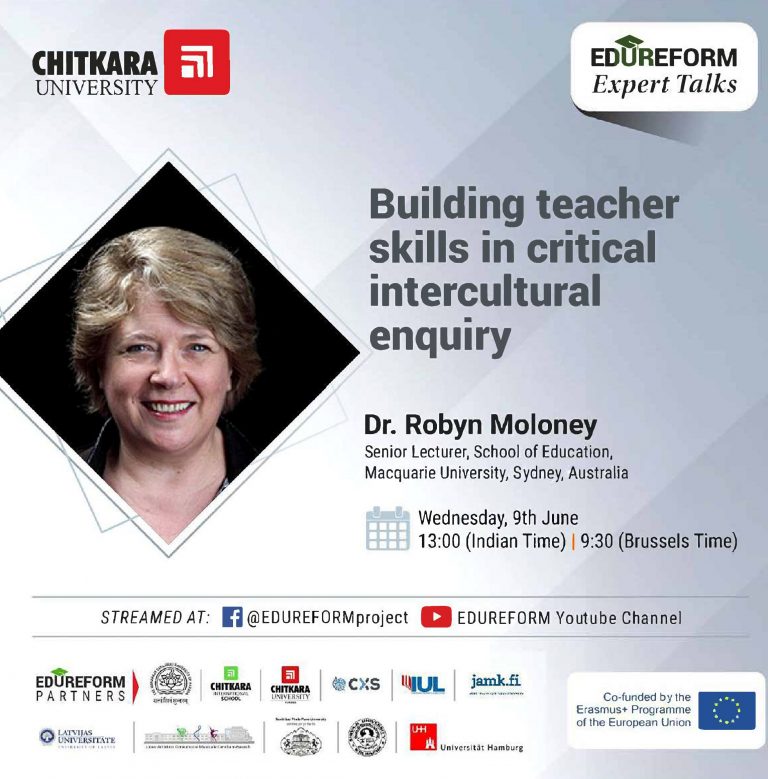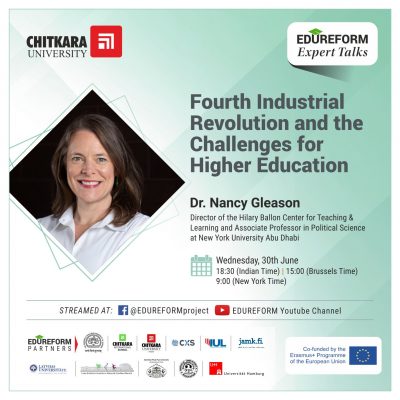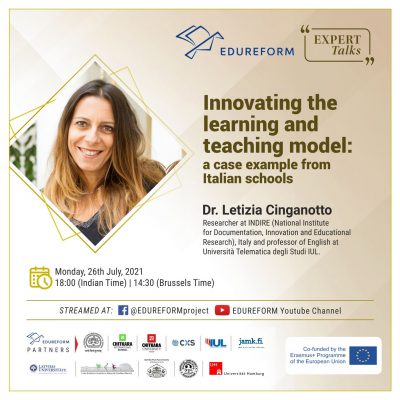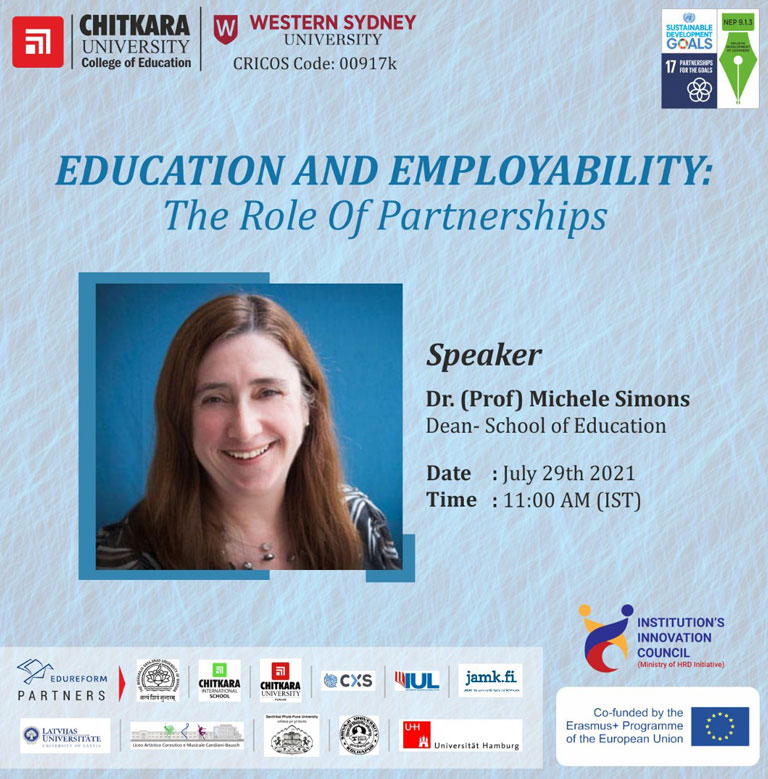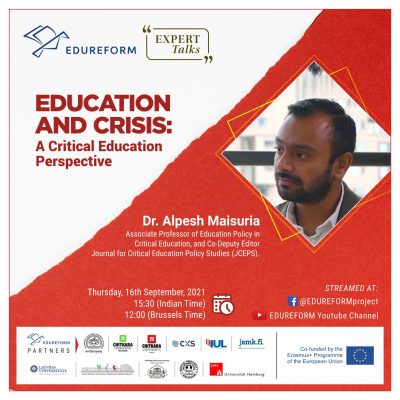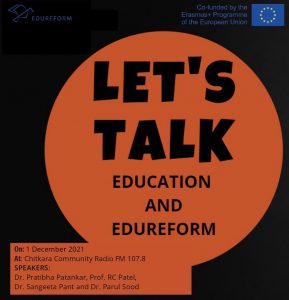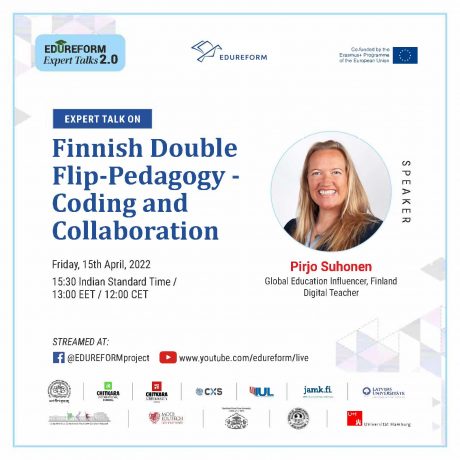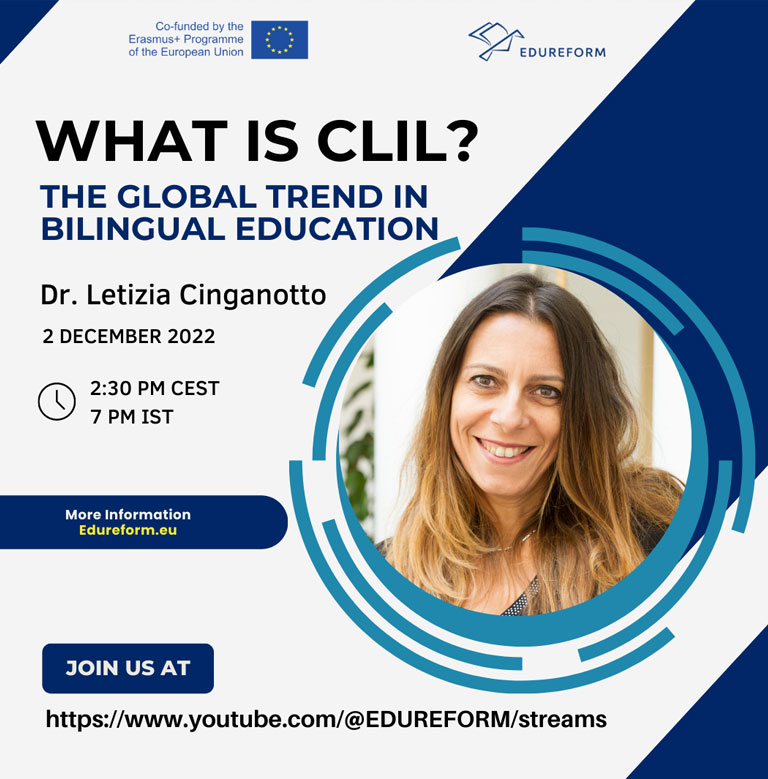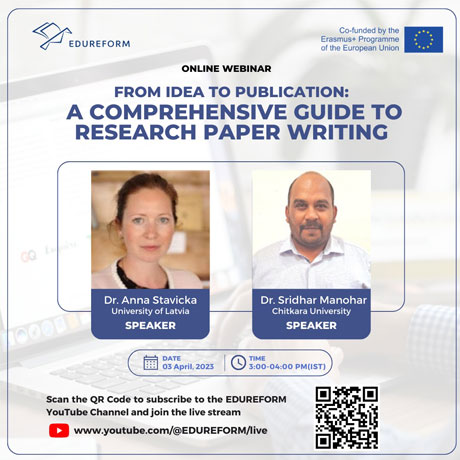EDUREFORM Expert Talks
Dr. Robin Moloney, a distinguished educator, speaks about building teachers' skills in critical intercultural inquiry. She emphasizes the significance of intercultural understanding as a key capability in the 21st-century curriculum. She emphasizes the need to go beyond comparing countries and cultures superficially, and instead, promote critical thinking and individual transformation for a more meaningful intercultural approach in education.
Higher education institutions are facing significant challenges and opportunities in the Fourth Industrial Revolution. Firms and governments are focusing on implementing active learning strategies and fostering self-directed learners. This shift is essential to meet the demands of the rapidly changing job market and the fourth industrial revolution. Empowering teachers in rural areas, especially in countries with mainly private education, can be achieved through collaboration with students.
To make innovation sustainable in schools, four cultural forces must be considered: pedagogical framework, leadership, community, and institutionalization. The pedagogical framework sets the vision for the school and should be flexible yet coherent. Leadership involves political visionary and practical visionary roles, implementing choices in line with the shared vision. The first key point from the transcript highlights an innovative teaching approach that involves students actively participating in their learning process. The speaker suggests using authentic and meaningful tasks to engage students and promote language use.
The concept of employability is crucial, and partnership pedagogy plays a significant role in preparing students for the workforce. Western Sydney University emphasizes co-creating curriculum with industry partners, integrating work into learning, and building skills beyond traditional education boundaries. This approach empowers students to be job-ready and adaptable to the rapidly changing technological landscape. Partners willingly share knowledge, skills, and resources, fostering an environment of collaboration. Accountability and openness are key, with proactive communication to address questions, progress, and challenges.
Teaching can be enjoyable when teachers are passionate, observe their students, understand their needs, and connect with them. Keeping a unique teaching style within the larger education policy framework is important. Teachers need to maintain their passion and provide a safe environment where students can take risks and engage in learning.
The advent of the fourth industrial revolution (4IR) may lead to people obtaining qualifications and skills for jobs that won't be readily available due to market saturation in the labor market. This will result in fierce competition among individuals possessing high-level skills and qualifications for relatively low-skilled positions. The speaker discusses the evolving role of IT departments, highlighting the increasing need for technologists in universities. The speaker emphasizes the importance of leveraging technology and education for social justice.
The radio talk on Chitkara Community Radio FM 107.8 featured Deans and Heads of Departments discussing the impactful contributions of renowned universities to the EDUREFORM project. Emphasizing added value, diversity, and quality, the dialogue highlighted their commitment to educational excellence. The radio platform served as an engaging medium to communicate their unique programs and innovations. Expressing gratitude for their involvement underscored the importance of these institutions within the consortium. This succinct on-air conversation not only informed the audience but also strengthened the collaborative spirit essential for the ongoing success of the EDUREFORM initiative.
The Finnish Double Flip Pedagogy is a playful approach to teaching coding and competencies. It involves teachers becoming facilitators and co-learners, harnessing the skills of digitally native students, fostering global communication, and encouraging massive learning. The double flip involves videos and learning games for students, and then learners become teachers, enhancing their understanding and teaching abilities. This approach has proved effective and has even led to students excelling in national coding competitions. Coding can be a creative tool for problem-solving.
CLIL is a method that merges non-linguistic content with language learning, helping students understand subjects like geography, music, and chemistry through a foreign language. The focus is on integrating language and content, promoting critical thinking, and fostering communication skills while embracing multilingualism. In the context of the global approach, the use of culture as a transversal methodology is highlighted. This involves making connections between the topic, language, and culture. (to be added along with the poster and YouTube link after Pirjo's talk)
This session of the expert talk focuses on how to write a good research paper. The speaker highlights the importance of conducting a literature review to ensure credibility and legitimacy in the research. Furthermore, the title formulation is emphasized as a crucial step to attract readers' attention and advance the field. The title should contain the identified problem, controlling idea, and research sample or context. The overall framework of the full article is outlined, which includes the introduction, methods, results, and discussion. By following these guidelines, aspiring researchers can enrich their understanding of the elements required for a successful research paper.
